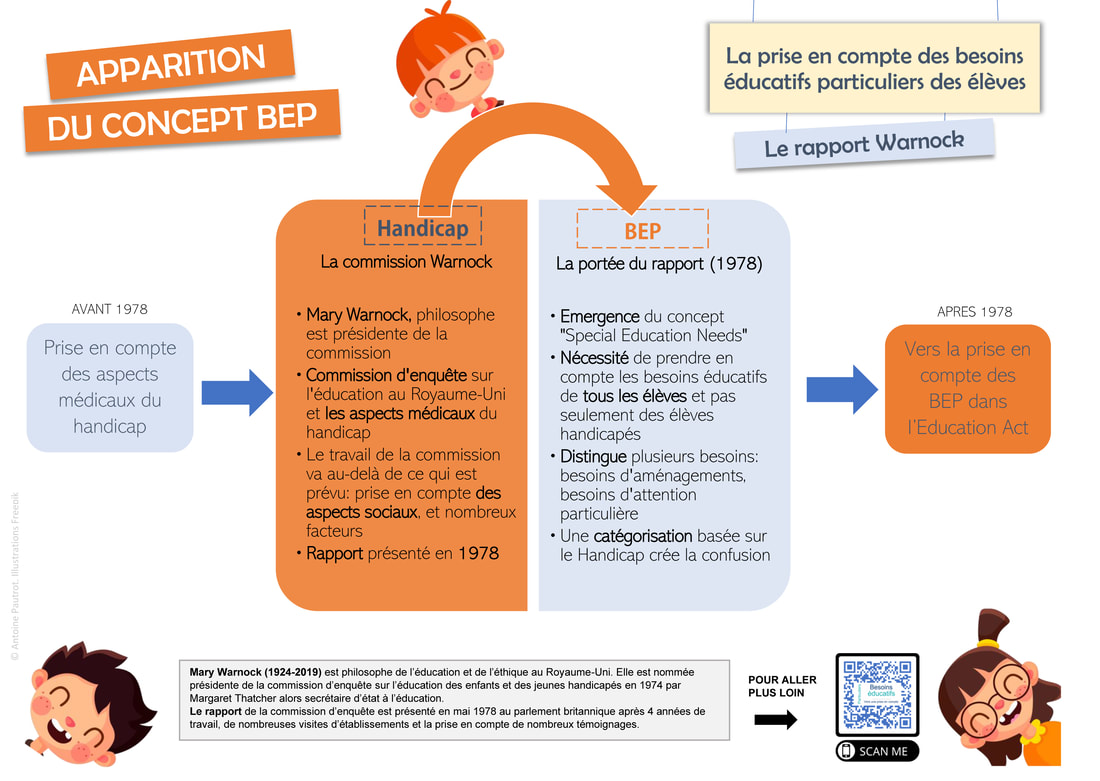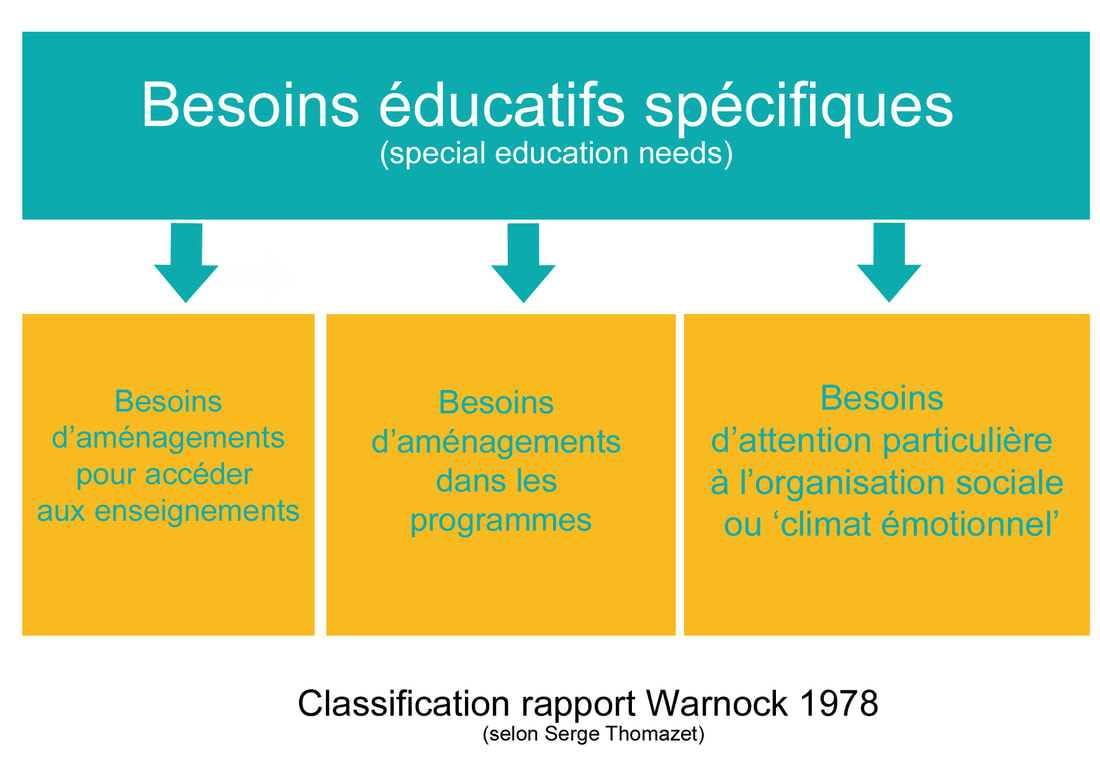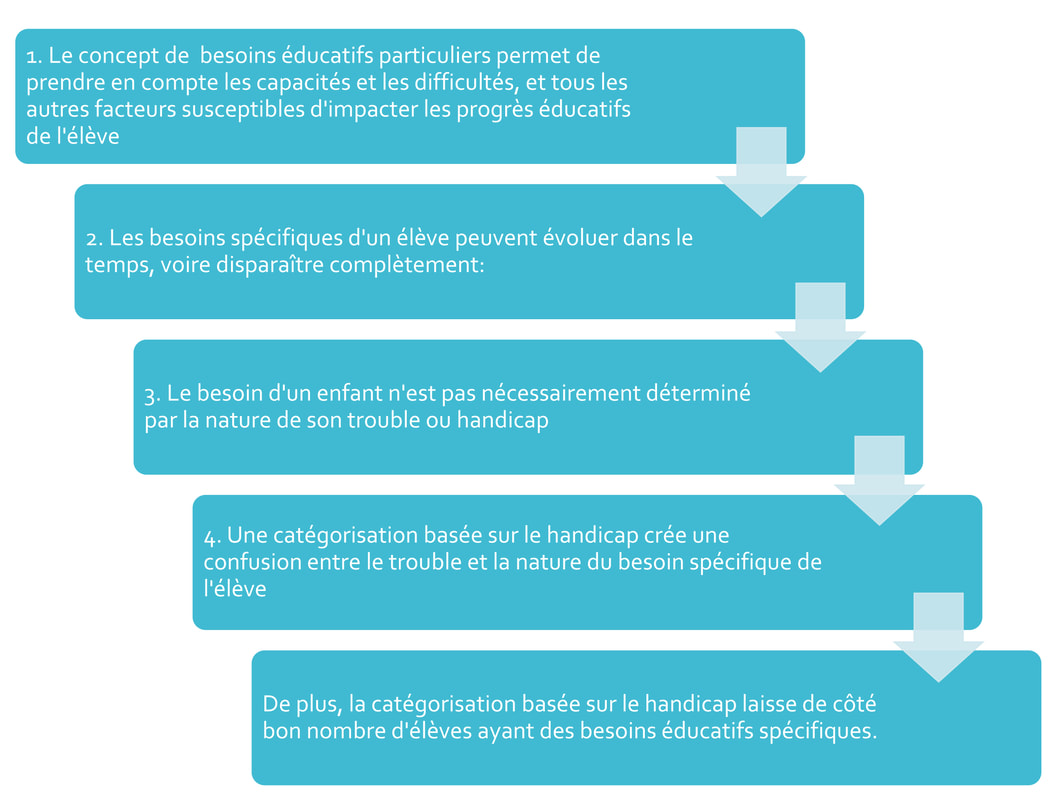Le rapport Warnock, infographie- la notion de BEP-"(i) the provision of special means of access to the curriculum through special equipment, facilities or resources, modification of the physical environment or specialist teaching techniques; Infographie A. Pautrot
Les principes du rapport Warnock
- en lien avec le concept de besoin éducatif particulier - Voici quelques principes énoncés dans le rapport Warnock, parmi lesquels la définition du concept de "Special Education Need", besoin éducatif particulier:
1. Le concept de besoins éducatifs particuliers permet de prendre en compte les capacités et les difficultés, et tous les autres facteurs susceptibles d'impacter les progrès éducatifs de l'élève
"We wish to see a more positive approach, and we have adopted the concept of SPECIAL EDUCATIONAL NEED, seen not in terms of a particular disability which a child may be judged to have, but in relation to everything about him, his abilities as well as his disabilities - indeed all the factors which have a bearing on his educational progress. " 2. Les besoins spécifiques d'un élève peuvent évoluer dans le temps, voire disparaître complètement:
"While the special needs of some children will continue for relatively long periods and, in some cases, permanently, those of other children will, if promptly and effectively met, cease to exist." 3. Le besoin d'un enfant n'est pas nécessairement déterminé par la nature de son trouble ou handicap
"It follows from what we have said about the different forms of special educational need that the particular form presented by an individual child is not necessarily determined by the nature of any disability or disorder suffered by him" 4. Une catégorisation basée sur le handicap crée une confusion entre le trouble et la nature du besoin spécifique de l'élève
"More important, categorisation promotes confusion between a child's disability and the form of special education he needs."... 5. Il est nécessaire d'évaluer et de ré-évaluer les besoins des élèves ayant des besoins éducatifs spécifiques en se basant sur un référentiel préparé par une équipe pluri-disciplinaire.
"We recommend that there should be a system of recording as in need of special educational provision those children who, on the basis of a detailed profile of their needs prepared by a multi-professional team, are judged by their local education authority to require special educational provision not generally available in ordinary schools." 6. Il n'y a pas des enfants handicapés et des enfants non handicapés. Il y a des enfants ayant des besoins éducatifs spécifiques.
"At the same time this system will be part of a much wider scheme designed to ensure that the individual needs of all those children - up to one in five - who require special educational provision at any time during their school career are appropriately assessed and met and that their parents* are involved as fully as possible. We hope that this scheme, which is developed in the course of this report, will help to eliminate the notion of two types of children - the handicapped and the non-handicapped - both in theory and in practice." |
Sites utiles
|













